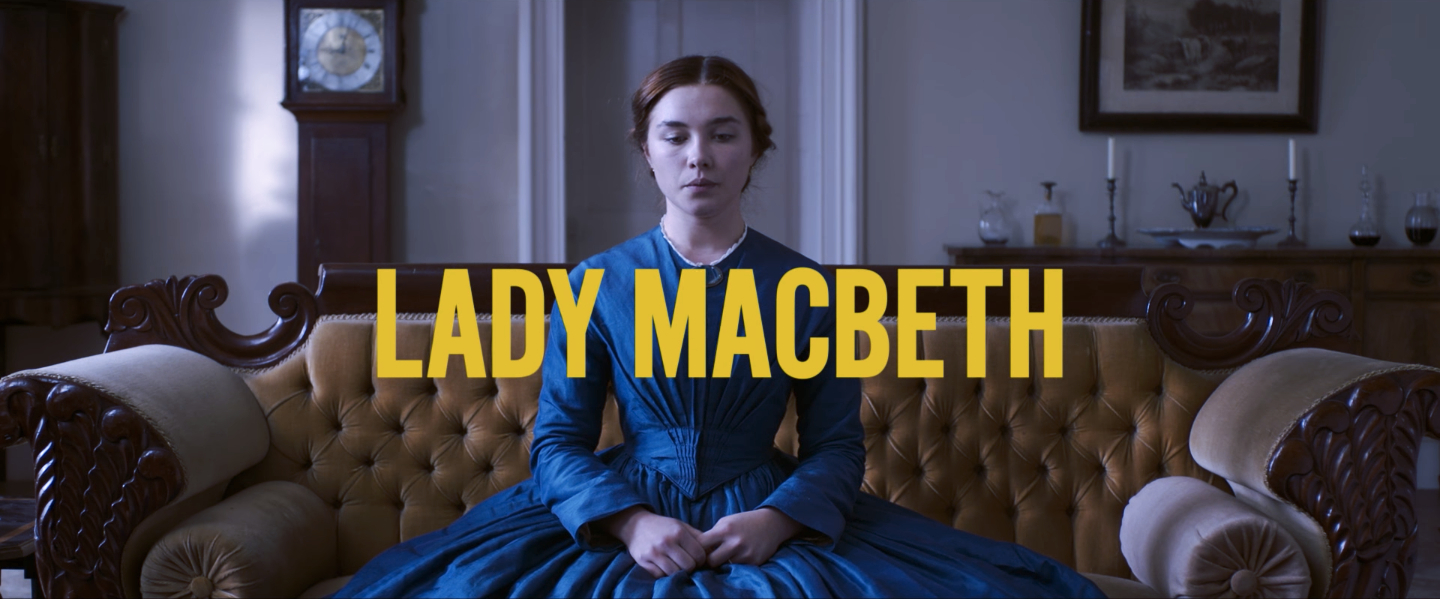Lady Macbeth Is a 19th Century Period Film About Fighting “Against the Stifling Patriarchy”
Nothing to do with the Shakespeare play... except thematically.

The title of the movie Lady Macbeth might lead you to believe it’s inspired by one of the meatiest and best roles in Shakespeare’s Scottish play—but actually, it tells a very different story. It’s an adaptation of a 1865 Russian novel (and a subsequent opera) titled Lady Macbeth of the Mtsensk District. The novel, and its subsequent adaptations, don’t tell the story of a woman named Lady Macbeth, but do tell the story of a woman who plans a murder and later feels haunted by it.
This trailer, however, seems to tell a somewhat different story than the novel that preceded it. This version of the story appears to focus much more on the perspective of the heroine, whose name is Katerina in the original story; in this version, she lives in rural England instead of Russia, albeit during the same time period as the original novel. Her name has been changed to Katherine, and she’s played by Florence Pugh.
The trailer begins with Katherine getting sold into a marriage with an abusive (but rich) brute; given the time period, this is long before marital rape was deemed illegal, and Katherine’s husband certainly doesn’t care about his wife’s consent. While her husband is at home, it’s made clear that Katherine isn’t even allowed to leave the house on her own. In this trailer, we watch some brief snippets of that abuse unfolding, so… content warning for all of that.
Eventually, Katherine’s husband goes out of town, at which point she begins a whirlwind romantic affair with a man who works for her husband’s estate. This guy is much closer to her age, and their romance seems a lot more genuine and emotionally uplifting for her, as depicted in this trailer. The two of them end up planning the murder of her husband together–but since this movie looks like a thriller, I doubt things are going to work out for our lovers.
I read the recaps of the original novel and opera, and although it was written a long time ago, it sounds as though Katherine was still intended to be seen as a sympathetic figure, trying to claw her way out of an impossible situation. This trailer echoes that sentiment, leaning hard on the grim historical realities of the time, and the fact that Katherine has very few options available to her. She might have had more options besides just straight-up murdering her abuser, but she still comes across as sympathetic to me, at least in this first trailer. (What does that tell you about me? Kidding, kidding–please resist the urge to psychoanalyze me in the comments, folks.)
Based on the statements made by the creative team for the movie, it sounds as though Lady Macbeth definitely plans to humanize its heroine. The novel got adapted for the screen by British playwright Alice Birch. The movie’s director, William Oldroyd, lavished praise upon her screenplay and her vision as one of the strongest aspects of the film, telling Filmmaker Magazine that he invited Birch to be present throughout the filming of the movie. He explained that “even though the ‘authorship’ of a film is rebalanced in favor of the director,” at least historically, he believed it “foolish” not to make use of the writer’s input “when I had a script as good as the the one Alice Birch had written.”
Oldroyd went on to emphasize that the whole concept began as Alice Birch’s idea:
… At our first meeting she gave me a copy of Lady Macbeth of the Mtsenk District by Nikolai Leskov — a mid-nineteenth century novella set in Russia. I knew similar literature of the period which focused on strong female protagonists (I had already directed Ghosts, by Ibsen) but what made it stand out was that unlike other heroines of that period she was neither passive nor suicidal but rather proactive and audacious. It was so refreshing and “modern” to find a female lead character who kicked back against the stifling patriarchy rather than suffering in silence.
Oldroyd also offered some more historical backstory about the operatic adaptation: “Stalin had banned it when it was first produced because he found the character of Katarina to be too outrageous. Surely a good reason to do it!” There is also another film adaptation of the story that has been done, but Oldroyd hasn’t seen it; this new adaptation will be done with fresh eyes towards the old story.
(via Uproxx, image via YouTube screencap)
Want more stories like this? Become a subscriber and support the site!
—The Mary Sue has a strict comment policy that forbids, but is not limited to, personal insults toward anyone, hate speech, and trolling.—
Follow The Mary Sue on Twitter, Facebook, Tumblr, Pinterest, & Google+.
Have a tip we should know? [email protected]